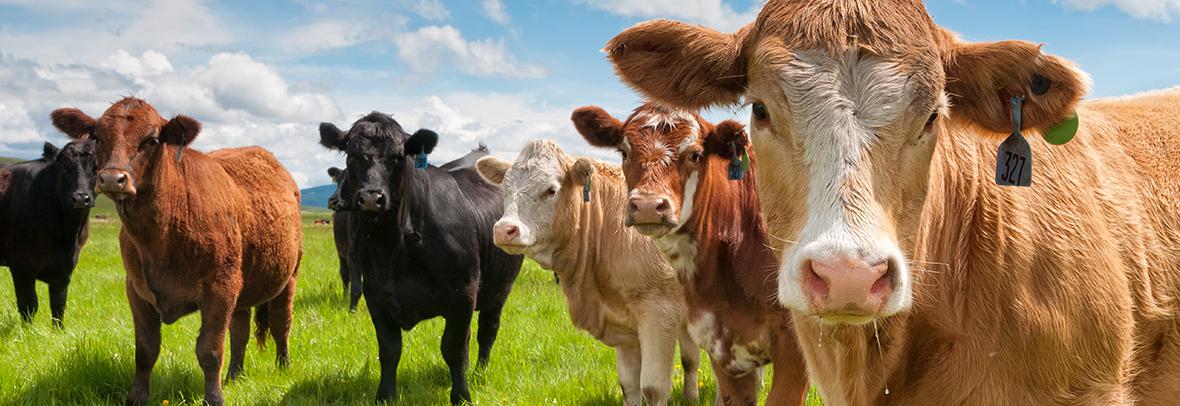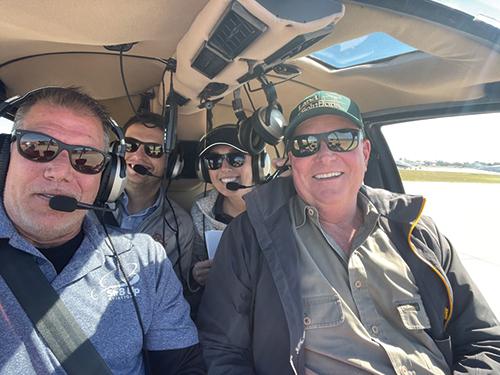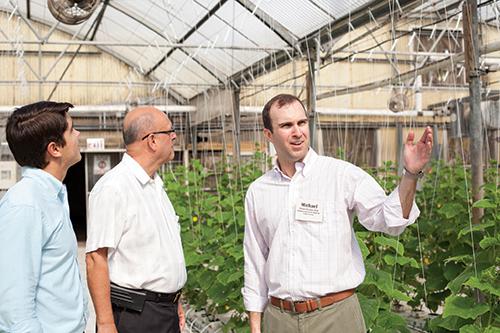
Moo, Cluck, Neigh: The Uniqueness of Selling a Farm
The things you need to acquire, to do and to know as a Realtor® selling farms can be quite different than selling a home or commercial building. Here is insight from two Realtors who have been doing it successfully for many years.
Chartering a helicopter for clients to see all the land parcels at one time can be worth the hefty price, which can run up to $3,500 an hour depending on if you choose the one with leather seats and a less bumpy ride.

“We had somebody that needed a parcel of land to build a grocery store. We covered 10 communities in one hour,” says William “Billy” Rollins Jr., CCIM, ALC, senior broker at LSI Companies Inc., Fort Myers. “A helicopter is a great tool to see what’s going on.”
But many times, to get boots on the ground, he takes potential buyers out on his six-seater Polaris Ranger UTV (Utility Task Vehicle). To get it to the farmland, he hauls it on a 30-foot trailer and drives it with his large truck. The equipment and skills used by land brokers can include everything from keeping bug spray handy to understanding certain soils and keeping up with zoning regulations.
Rollins is among only 71 Realtors® in Florida who earned the Accredited Land Consultant (ALC) designation, with less than 700 in the country. He also is a former president of the Florida Chapter of Realtors® Land Institute (RLI) and currently serves as Director at Large for RLI at the national and state levels.
With his many years of experience, Rollins knows that understanding sensitive family conflicts, especially those selling multigenerational farms, becomes a powerful skill.
“Some family members cannot talk together, and some can’t even be in the same room together,” he states.
Some siblings don’t want to sell. Others may want the cash for other endeavors. He has seen many times heirs do things to derail the marketing efforts of the property. They even changed the locks on gates making it impossible to inspect certain areas to block any sales.
“Bolt cutters are a must in this business,” he says. “You need to keep an open mind and listen,” he adds.
Here’s how he keeps things running smoothly throughout a farm sale, even with conflicted families:
- When he communicates, he does it with everyone involved at the same time. Typically, he doesn’t get into a phone conversation with just one of the family members to talk about the deal or reports. He wants to talk to everybody at the same time.
- Don’t go onto an agricultural property without notifying the contact person and someone in your office. “Lots of things can happen, and there’s not always people out on the farm. You could end up in a ditch, get hurt and need help.” He also tells owners that he’s coming out because ag operations use chemicals that are sprayed on crops and may have a three-day re-entering period on the land.
- Understand land mining. Research who the owners are of 50 acres or larger tracts of land and how you get in touch with them. Then, you send out a mass mailing by sending a letter or postcard introducing yourself along with your business card. “Most likely, most of them will throw it in the trash,” he says. “However, you might get 10 people that you have made a relationship with for the future.”
- Get your ALC designation and look for a successful/trusted land broker as a mentor.
Putting heart, soul and time into farm sales
Michael Strahan worked for months getting exactly what the family wanted when selling the 600-acre watermelon farm. The 5,000-square-foot home on the property had been custom-built by a husband and wife. He died, and it was just getting too much for her to handle.

The widow didn’t want to move, so the person buying it agreed to let the widow live in the house while he just bought the land. The transaction was good to go until it wasn’t.
“At the 11th hour, the matriarch wouldn’t sell. Emotions stopped the sale. It happens,” says Strahan, ALC, CCIM, senior broker of Eshenbaugh Land Company, Tampa. He also serves as President of the Florida Chapter of RLI.
But despite some of the setbacks, he wouldn’t want to do anything else, even though a sale can take months or even a few years to come to fruition. He’s sold everything from a greenhouse operation to a 3,000-acre orange grove to a big ranch.
“I love going to see people’s farms and ranches and getting to know them. They are the best people the in world. What you see is what you get. Their handshake is their word,” he states. “If you treat people right, you will go a long way.”
His company uses all types of technology to help clients understand all the contours, waterways, easements, and opportunities of a property.
“We use drones on every property. But if it’s over 400-500 acres, we hire an airplane pilot to take shots if it,” he says. “You want them to get a good feel of it, specifically like a ranch.”
He also uses a hunting app called onX Hunt and a parcel data and property line map, LandGlide, along with map and GPS apps such as Land id™ and MapWise. AI also has been helpful for creation of better descriptions of his available offerings.
As he ventures out with potential clients, he definitely has gotten his share of bites from ticks and chiggers.
“I wear cowboy boots most every day, and mud boots when it calls for it,” he says.
Here are Strahan’s ideas of how to succeed as a farm broker:
- Keep up with the many advanced GPS and parcel apps. You get to see what the property looks like initially before anything is scheduled. “You can get a tour of it before stepping onto the land or into the woods.”
- You can send out mailers and postcards announcing a sale directly to nearby landowners. “I enjoy talking to people and getting to know them and let them tell you about their operation and what they might be looking for,” he says.
- You can find potential clients by going to local cafes, coffee shops and restaurants. Don’t be salesy but get to know people.
Lee Nelson is an Illinois-based freelance writer.
